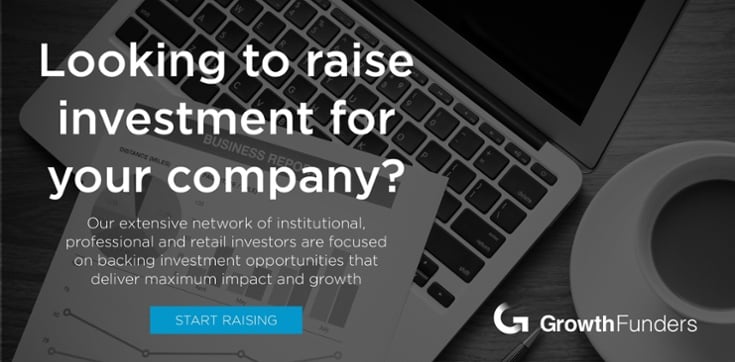Raising finance: what funding stage is your business at?
Last week we kicked off our 2017 'introduction to raising finance' series.
Looking at the very first question you should ask as an entrepreneur wanting to raise finance - is your business ready for investment? - today we're moving on to look at the different funding stages to help you determine which stage your business is likely at.
(as a side note, when we're discussing raising investment with a company, we'll always offer advice on this, but it's always useful to have an understanding!)
There are several key benchmarks to consider in terms of business stage and positioning, which in turn indicate which would be the most suitable first round of funding for you.
Importantly, these are rough benchmarks and the stage and funding requirement can vary greatly depending on the sector, product and market.
The terminology can also differ slightly, but generally speaking, the following offers a high level view of the most common stages.
Proof Of Concept/Accelerator: typically raising between £20,000 and £100,000
This round usually takes place with small companies where there is a team, big vision, big market and prototype of the product or service, but with only minimal traction (often because they're an early-stage startup).
Once a funding round that was generally restricted to the three Fs of 'fools, friends and family', most major cities now have at least one startup accelerator, helping companies really get their working model off the ground.
Seed Round/Angel Round: typically raising between £100,000 and £1,000,000
A secondary stage, a Seed or Angel round will usually take place when there is a product/service that has some traction, happy users and proven market, and there is a clear need for development to further the successes seen to date.
Traditionally, this would be the first round of funding for many organisations. Establishing your startup in the market and with enough customers to prove the model works, a Seed / Angel round can provide a considerable cash - and experience - injection.
Super Seed Round: typically raising between £500,000 and £2,000,000
Suitable for businesses who have proven their product/service in their primary market and may now be in a position to launch a new product, or enter into a secondary market.
Very much a follow on round from the above Seed / Angel round, you've used the above to further establish your business, cementing your place in the industry - and now it's time to grow and take it to the next level.
Series A Round: typically raising between £2,000,000 and £10,000,000
This is a funding round in which capital is injected into a business in order to optimise the company, which could include customers, products, services, team and structure.
Raised to focus on one specific area or all of them (depending on the company's needs and what's restricting them from further growth), at funds of this level, your business will be well established, and it's now a case of improving procedures and processes to see even greater results.
Series B Round: typically raising over £5,000,000
Often considered a building round, a Series B round of funding essentially continues on the development of a Series A round.

However, due to the later stage nature of the businesses within this stage (and understanding being more established therefore often reduces the associated risk), it can attract investment from the next tier of venture capitalists.
The benefits of this next tier are not just financial (although investors will, generally speaking, have a greater amount of money to invest), but come in the form of knowledge and experience, too - who wouldn't want the input of industry professionals who have been heavily involved in numerous businesses of varying sizes?
Series C Round: typically raising over £10,000,000
This ‘final’ round of equity funding is referred to as the scaling round; building the business so it is ready for an Initial Public Offering (IPO), Management Buyout (MBO), Management Buy-In (MBI) or merger.
Series C round funding attracts large players, such as hedge funds, private equity firms, investment banks and big secondary market groups.
For companies going through a Series C round, they will generally not be looking to use the raise for product enhancement or development, but instead to increase their market share considerably.
Raising finance for your startup
One of the most important points to consider when looking at the investment rounds as a business is that although you could go through each in the order discussed above, that doesn't have to be the case.
In fact, a business could jump a round or two - and theoretically, complete the same round twice.
Working out what stage your business is at isn’t an exact science, and many people have differing opinions of how to decide on which round would be most suitable.
Moreover, it is similar in the way to which a company’s valuation can differ massively in that as long as a business owner or senior management team can substantiate their opinions, figures and business plan, then the valuation or indeed stage of the business could be warranted at that quantum.
This post is part of our 2017 'introduction to raising finance' series, which gives an insight into the entire process, exploring the individual funding rounds, types of investors, the importance of valuing your business accurately, and much more.
%20(3)%20(2).jpg)







